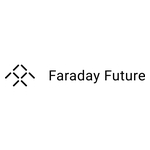Planet and Global Fishing Watch Expand Collaboration for Ocean Transparency and Accountability
Planet Press
Lauren Neville Cottrell
comms@planet.com
Planet Investor Relations
Cleo Palmer-Poroner
ir@planet.com
Planet Labs PBC (NYSE: PL), a leading provider of daily data and insights about Earth, today announced a new contract with Global Fishing Watch, an international nonprofit dedicated to advancing ocean governance through increased transparency of human activity at sea. The 6-figure deal is an expansion of the organization’s ongoing agreement with Planet, and will allow Global Fishing Watch to fully leverage PlanetScope data and Machine Learning (ML) to improve ocean stewardship and foster greater compliance and accountability across all maritime sectors.
The new contract represents a significant expansion of Global Fishing Watch’s PlanetScope monitoring coverage, providing 3-meter optical imagery spanning most of the world's coastlines. With this heightened capability, Global Fishing Watch aims to map small vessel activity across millions of square kilometers of the ocean as far from the shoreline as possible. This will allow the organization to greatly augment its ability to detect small vessels that are not using Automatic Identification Systems (AIS) or Vessel Monitoring Systems (VMS), enabling more accurate determination of fishing activities and better support for ocean governance efforts around the world.
“Global Fishing Watch’s expanded collaboration with Planet will enable us to dramatically improve our capabilities to map the activities of smaller vessels close to shore, adding several million more previously untracked vessels to our platform,” explained Paul Woods, co-founder and chief innovation officer of Global Fishing Watch. “This brings us much closer to achieving our audacious goal of mapping all human activity at sea—for both the good of the ocean and the people whose livelihoods depend on healthy fisheries and marine ecosystems.”
Global Fishing Watch uses AIS to track many vessels at sea. This GPS-based system is primarily a collision avoidance system, but can also be used to track vessels and determine if they are acting illegally. However, AIS is not required on many vessels, especially the millions of small fishing vessels around the world that are responsible for almost half of the global seafood catch. AIS can also be abused so as to broadcast false information. Because of this, Global Fishing Watch has turned to satellite imagery like PlanetScope to detect non-broadcasting vessels as well as those that are deliberately seeking to avoid detection.
By complementing insights generated by Global Fishing Watch’s tracking data, the imagery provided by Planet will help fuel analyses that enable monitoring, control and surveillance officers, policymakers, and fisheries managers to make better and more informed decisions about activities taking place in their waters. This increased transparency will not only help safeguard those on the front lines of maritime patrolling and enforcement, but will also help generate increased accountability into ocean activity around the world.
“Through the growing capabilities and analysis made possible by EO imagery, Planet and our partners like GFW are proud to bring awareness and action to critical climate issues, including ocean conservation and transparency. We’re excited that this integration is just one of many leading examples of how ML and satellite data can help make meaningful strides in environmental conservation work,” said Planet Chief Impact Officer Andrew Zolli. “Whether it’s monitoring deforestation in the Amazon or illegal fishing in the Atlantic Ocean, Planet is committed to being a leader on the front line of climate solutions.”
The ongoing partnership between Global Fishing Watch and Planet embodies the organizations' commitment to improving the planet through transparency and innovation. The new and cutting-edge integration of PlanetScope data with Global Fishing Watch’s ML model will meaningfully improve Global Fishing Watch’s ability to identify vessels which are not broadcasting AIS signals – helping facilitate monitoring and enforcement efforts and creating a safer, healthier ocean for all.
About Planet
Planet is a leading provider of global, daily satellite imagery and geospatial solutions. Planet is driven by a mission to image the world every day, and make change visible, accessible and actionable. Founded in 2010 by three NASA scientists, Planet designs, builds, and operates the largest Earth observation fleet of imaging satellites. Planet provides mission-critical data, advanced insights, and software solutions to over 1,000 customers, comprising the world’s leading agriculture, forestry, intelligence, education and finance companies and government agencies, enabling users to simply and effectively derive unique value from satellite imagery. Planet is a public benefit corporation listed on the New York Stock Exchange as PL. To learn more visit www.planet.com and follow us on X (formerly Twitter) or tune in to HBO's ‘Wild Wild Space’.
About Global Fishing Watch
Global Fishing Watch is an international nonprofit organization dedicated to advancing ocean governance through increased transparency of human activity at sea. By creating and publicly sharing map visualizations, data and analysis tools, we aim to enable scientific research and transform the way our ocean is managed. We believe human activity at sea should be public knowledge in order to safeguard the global ocean for the common good of all.
View source version on businesswire.com: https://www.businesswire.com/news/home/20241120268553/en/
 Business wire
Business wire 








Add Comment